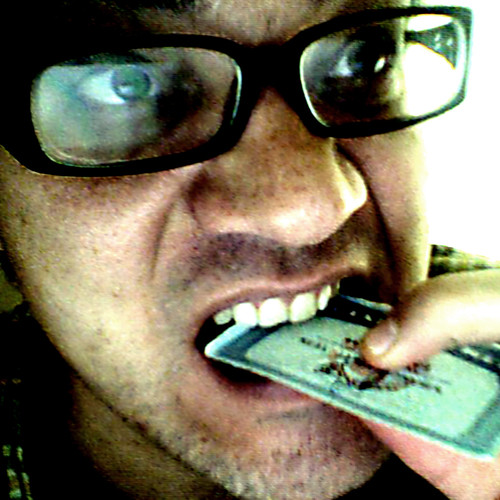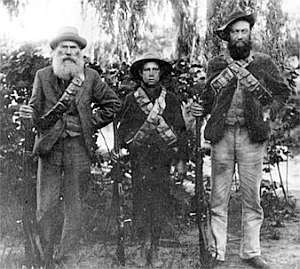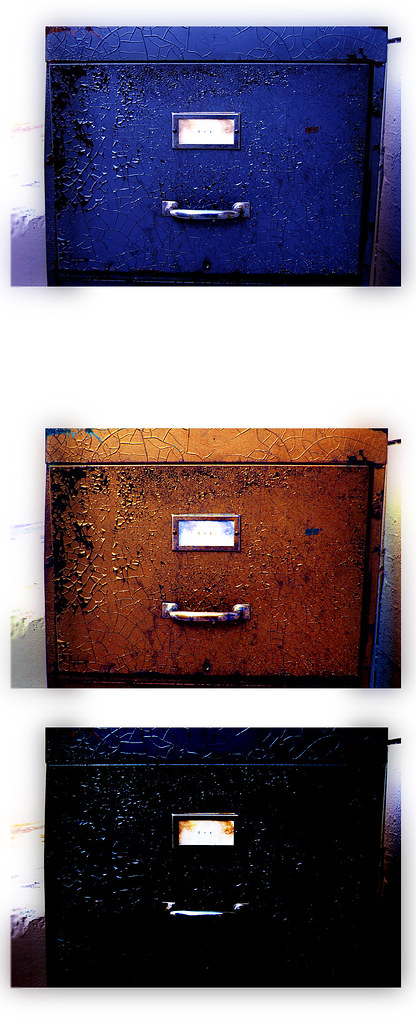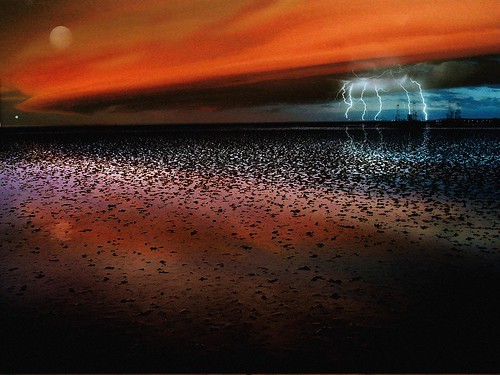The Blood of Dresden
by Kurt Vonnegut
The author Kurt Vonnegut was a prisoner of war in Dresden during the allied bombing raids and was later forced to dig out bodies from the ruined city. In papers discovered by his son after his death last year, he provides a searing eyewitness account of the ‘obscene brutality’ that inspired his novel Slaughterhouse-Five.25/09/08 - as printed in "The Times"
It was a routine speech we got during our first day of basic training, delivered by a wiry little lieutenant: “Men, up to now you’ve been good, clean, American boys with an American’s love for sportsmanship and fair play. We’re here to change that.
“Our job is to make you the meanest, dirtiest bunch of scrappers in the history of the world. From now on, you can forget the Marquess of Queensberry rules and every other set of rules. Anything and everything goes.
“Never hit a man above the belt when you can kick him below it. Make the bastard scream. Kill him any way you can. Kill, kill, kill – do you understand?”
His talk was greeted with nervous laughter and general agreement that he was right. “Didn’t Hitler and Tojo say the Americans were a bunch of softies? Ha! They’ll find out.”
And of course, Germany and Japan did find out: a toughened-up democracy poured forth a scalding fury that could not be stopped. It was a war of reason against barbarism, supposedly, with the issues at stake on such a high plane that most of our feverish fighters had no idea why they were fighting – other than that the enemy was a bunch of bastards. A new kind of war, with all destruction, all killing approved.
A lot of people relished the idea of total war: it had a modern ring to it, in keeping with our spectacular technology. To them it was like a football game.
[Back home in America], three small-town merchants’ wives, middle-aged and plump, gave me a ride when I was hitchhiking home from Camp Atterbury. “Did you kill a lot of them Germans?” asked the driver, making cheerful small-talk. I told her I didn’t know.
This was taken for modesty. As I was getting out of the car, one of the ladies patted me on the shoulder in motherly fashion: “I’ll bet you’d like to get over and kill some of them dirty Japs now, wouldn’t you?”
We exchanged knowing winks. I didn’t tell those simple souls that I had been captured after a week at the front; and more to the point, what I knew and thought about killing dirty Germans, about total war. The reason for my being sick at heart then and now has to do with an incident that received cursory treatment in the American newspapers. In February 1945, Dresden, Germany, was destroyed, and with it over 100,000 human beings. I was there. Not many know how tough America got.
I was among a group of 150 infantry privates, captured in the Bulge breakthrough and put to work in Dresden. Dresden, we were told, was the only major German city to have escaped bombing so far. That was in January 1945. She owed her good fortune to her unwarlike countenance: hospitals, breweries, food-processing plants, surgical supply houses, ceramics, musical instrument factories and the like.
Since the war [had started], hospitals had become her prime concern. Every day hundreds of wounded came into the tranquil sanctuary from the east and west. At night, we would hear the dull rumble of distant air raids. “Chemnitz is getting it tonight,” we used to say, and speculated what it might be like to be the bright young men with their dials and cross-hairs.
“Thank heaven we’re in an ‘open city’,” we thought, and so thought the thousands of refugees – women, children and old men who came in a forlorn stream from the smouldering wreckage of Berlin, Leipzig, Breslau, Munich. They flooded the city to twice its normal population.
There was no war in Dresden. True, planes came over nearly every day and the sirens wailed, but the planes were always en route elsewhere. The alarms furnished a relief period in a tedious work day, a social event, a chance to gossip in the shelters. The shelters, in fact, were not much more than a gesture, casual recognition of the national emergency: wine cellars and basements with benches in them and sandbags blocking the windows, for the most part. There were a few more adequate bunkers in the centre of the city, close to the government offices, but nothing like the staunch subterranean fortress that rendered Berlin impervious to her daily pounding. Dresden had no reason to prepare for attack – and thereby hangs a beastly tale.
Dresden was surely among the world’s most lovely cities. Her streets were broad, lined with shade-trees. She was sprinkled with countless little parks and statuary. She had marvellous old churches, libraries, museums, theatres, art galleries, beer gardens, a zoo and a renowned university.
It was at one time a tourist’s paradise. They would be far better informed on the city’s delights than am I. But the impression I have is that in Dresden – in the physical city – were the symbols of the good life; pleasant, honest, intelligent. In the swastika’s shadow, those symbols of the dignity and hope of mankind stood waiting, monuments to truth. The accumulated treasure of hundreds of years, Dresden spoke eloquently of those things excellent in European civilisa-tion wherein our debt lies deep.
I was a prisoner, hungry, dirty and full of hate for our captors, but I loved that city and saw the blessed wonder of her past and the rich promise of her future.
In February 1945, American bombers reduced this treasure to crushed stone and embers; disembowelled her with high explosives and cremated her with incendiaries.
The atom bomb may represent a fabulous advance, but it is interesting to note that primitive TNT and thermite managed to exterminate in one bloody night more people than died in the whole London blitz. Fortress Dresden fired a dozen shots at our airmen. Once back at their bases and sipping hot coffee, they probably remarked: “Flak unusually light tonight. Well, guess it’s time to turn in.” Captured British pilots from tactical fighter units (covering frontline troops) used to chide those who had flown heavy bombers on city raids with: “How on earth did you stand the stink of boiling urine and burning perambulators?”
A perfectly routine piece of news: “Last night our planes attacked Dresden. All planes returned safely.” The only good German is a dead one: over 100,000 evil men, women, and children (the able-bodied were at the fronts) forever purged of their sins against humanity. By chance, I met a bombardier who had taken part in the attack. “We hated to do it,” he told me.
The night they came over, we spent in an underground meat locker in a slaughterhouse. We were lucky, for it was the best shelter in town. Giants stalked the earth above us. First came the soft murmur of their dancing on the outskirts, then the grumbling of their plodding towards us, and finally the ear-splitting crashes of their heels upon us – and thence to the outskirts again. Back and forth they swept: saturation bombing.
“I screamed and I wept and I clawed the walls of our shelter,” an old lady told me. “I prayed to God to ‘please, please, please, dear God, stop them’. But he didn’t hear me. No power could stop them. On they came, wave after wave. There was no way we could surrender; no way to tell them we couldn’t stand it any more. There was nothing anyone could do but sit and wait for morning.” Her daughter and grandson were killed.
Our little prison was burnt to the ground. We were to be evacuated to an outlying camp occupied by South African prisoners. Our guards were a melancholy lot, aged Volkssturmers and disabled veterans. Most of them were Dresden residents and had friends and families somewhere in the holocaust. A corporal, who had lost an eye after two years on the Russian front, ascertained before we marched that his wife, his two children and both of his parents had been killed. He had one cigarette. He shared it with me.
Our march to new quarters took us to the city’s edge. It was impossible to believe that anyone had survived in its heart. Ordinarily, the day would have been cold, but occasional gusts from the colossal inferno made us sweat. And ordinarily, the day would have been clear and bright, but an opaque and towering cloud turned noon to twilight.
A grim procession clogged the outbound highways; people with blackened faces streaked with tears, some bearing wounded, some bearing dead. They gathered in the fields. No one spoke. A few with Red Cross armbands did what they could for the casualties.
Settled with the South Africans, we enjoyed a week without work. At the end of it, communications were reestablished with higher headquarters and we were ordered to hike seven miles to the area hardest hit.
Nothing in the district had escaped the fury. A city of jagged building shells, of splintered statuary and shattered trees; every vehicle stopped, gnarled and burnt, left to rust or rot in the path of the frenzied might. The only sounds other than our own were those of falling plaster and their echoes.
I cannot describe the desolation properly, but I can give an idea of how it made us feel, in the words of a delirious British soldier in a makeshift POW hospital: “It’s frightenin’, I tell you. I would walk down one of them bloody streets and feel a thousand eyes on the back of me ’ead. I would ’ear ’em whis-perin’ behind me. I would turn around to look at ’em and there wouldn’t be a bloomin’ soul in sight. You can feel ’em and you can ’ear ’em but there’s never anybody there.” We knew what he said was so.
For “salvage” work, we were divided into small crews, each under a guard. Our ghoulish mission was to search for bodies. It was rich hunting that day and the many thereafter. We started on a small scale – here a leg, there an arm, and an occasional baby – but struck a mother lode before noon.
We cut our way through a basement wall to discover a reeking hash of over 100 human beings. Flame must have swept through before the building’s collapse sealed the exits, because the flesh of those within resembled the texture of prunes. Our job, it was explained, was to wade into the shambles and bring forth the remains. Encouraged by cuffing and guttural abuse, wade in we did. We did exactly that, for the floor was covered with an unsavoury broth from burst water mains and viscera.
A number of victims, not killed outright, had attempted to escape through a narrow emergency exit. At any rate, there were several bodies packed tightly into the passageway. Their leader had made it halfway up the steps before he was buried up to his neck in falling brick and plaster. He was about 15, I think.
It is with some regret that I here besmirch the nobility of our airmen, but, boys, you killed an appalling lot of women and children. The shelter I have described and innumerable others like it were filled with them. We had to exhume their bodies and carry them to mass funeral pyres in the parks, so I know.
The funeral pyre technique was abandoned when it became apparent how great was the toll. There was not enough labour to do it nicely, so a man with a flamethrower was sent down instead, and he cremated them where they lay. Burnt alive, suffocated, crushed – men, women, and children indiscriminately killed.
For all the sublimity of the cause for which we fought, we surely created a Belsen of our own. The method was impersonal, but the result was equally cruel and heartless. That, I am afraid, is a sickening truth.
When we had become used to the darkness, the odour and the carnage, we began musing as to what each of the corpses had been in life. It was a sordid game: “Rich man, poor man, beggar man, thief . . .” Some had fat purses and jewellery, others had precious foodstuffs. A boy had his dog still leashed to him.
Renegade Ukrainians in German uniform were in charge of our operations in the shelters proper. They were roaring drunk from adjacent wine cellars and seemed to enjoy their job hugely. It was a profitable one, for they stripped each body of valuables before we carried it to the street. Death became so commonplace that we could joke about our dismal burdens and cast them about like so much garbage.
Not so with the first of them, especially the young: we had lifted them on to the stretchers with care, laying them out with some semblance of funeral dignity in their last resting place before the pyre. But our awed and sorrowful propriety gave way, as I said, to rank callousness. At the end of a grisly day, we would smoke and survey the impressive heap of dead accumulated. One of us flipped his cigarette butt into the pile: “Hell’s bells,” he said, “I’m ready for Death any time he wants to come after me.”
A few days after the raid, the sirens screamed again. The listless and heartsick survivors were showered this time with leaflets. I lost my copy of the epic, but remember that it ran something like this: “To the people of Dresden: we were forced to bomb your city because of the heavy military traffic your railroad facilities have been carrying. We realise that we haven’t always hit our objectives. Destruction of anything other than military objectives was unintentional, unavoidable fortunes of war.”
That explained the slaughter to everyone’s satisfaction, I am sure, but it aroused no little contempt. It is a fact that 48 hours after the last B-17 had droned west for a well-earned rest, labour battalions had swarmed over the damaged rail yards and restored them to nearly normal service. None of the rail bridges over the Elbe was knocked out of commission. Bomb-sight manufacturers should blush to know that their marvellous devices laid bombs down as much as three miles wide of what the military claimed to be aiming for.
The leaflet should have said: “We hit every blessed church, hospital, school, museum, theatre, your university, the zoo, and every apartment building in town, but we honestly weren’t trying hard to do it. C’est la guerre. So sorry. Besides, saturation bombing is all the rage these days, you know.”
There was tactical significance: stop the railroads. An excellent manoeuvre, no doubt, but the technique was horrible. The planes started kicking high explosives and incendiaries through their bomb-bays at the city limits, and for all the pattern their hits presented, they must have been briefed by a Ouija board.
Tabulate the loss against the gain. Over 100,000 noncombatants and a magnificent city destroyed by bombs dropped wide of the stated objectives: the railroads were knocked out for roughly two days. The Germans counted it the greatest loss of life suffered in any single raid. The death of Dresden was a bitter tragedy, needlessly and wilfully executed. The killing of children – “Jerry” children or “Jap” children, or whatever enemies the future may hold for us – can never be justified.
The facile reply to great groans such as mine is the most hateful of all clichés, “fortunes of war”, and another: “They asked for it. All they understand is force.”
Who asked for it? The only thing who understands is force? Believe me, it is not easy to rationalise the stamping out of vineyards where the grapes of wrath are stored when gathering up babies in bushel baskets or helping a man dig where he thinks his wife may be buried.
Certainly, enemy military and industrial installations should have been blown flat, and woe unto those foolish enough to seek shelter near them. But the “Get Tough America” policy, the spirit of revenge, the approbation of all destruction and killing, have earned us a name for obscene brutality.
Our leaders had a carte blanche as to what they might or might not destroy. Their mission was to win the war as quickly as possible; and while they were admirably trained to do just that, their decisions on the fate of certain priceless world heirlooms – in one case, Dresden – were not always judicious. When, late in the war, with the Wehrmacht breaking up on all fronts, our planes were sent to destroy this last major city, I doubt if the question was asked: “How will this tragedy benefit us, and how will that benefit compare with the ill-effects in the long run?”
Dresden, a beautiful city, built in the art spirit, symbol of an admirable heritage, so antiNazi that Hitler visited it but twice during his whole reign, food and hospital centre so bitterly needed now – ploughed under and salt strewn in the furrows.
There can be no doubt that the allies fought on the side of right and the Germans and Japanese on the side of wrong. World war two was fought for near-holy motives. But I stand convinced that the brand of justice in which we dealt, wholesale bombings of civilian populations, was blasphemous. That the enemy did it first has nothing to do with the moral problem. What I saw of our air war, as the European conflict neared an end, had the earmarks of being an irrational war for war’s sake. Soft citizens of the American democracy had learnt to kick a man below the belt and make the bastard scream.
The occupying Russians, when they discovered that we were Americans, embraced us and congratulated us on the complete desolation our planes had wrought. We accepted their congratulations with good grace and proper modesty, but I felt then as I feel now, that I would have given my life to save Dresden for the world’s generations to come. That is how everyone should feel about every city on earth.
---


 TVBEurope toured the vehicle as it was being systems integrated for its new Australian venture at the company’s European headquarters in Watford, UK. Gearhouse Broadcast’s trucks are coach-built by A Smith Great Bentley Ltd. HD-1’s project manager is John Fisher, who has been in the industry for over 40 years. HD-1 is the sixteenth truck John has built and he will start integrating number seventeen on behalf of Gearhouse Broadcast in the New Year.
TVBEurope toured the vehicle as it was being systems integrated for its new Australian venture at the company’s European headquarters in Watford, UK. Gearhouse Broadcast’s trucks are coach-built by A Smith Great Bentley Ltd. HD-1’s project manager is John Fisher, who has been in the industry for over 40 years. HD-1 is the sixteenth truck John has built and he will start integrating number seventeen on behalf of Gearhouse Broadcast in the New Year.




 I'm happy as a
I'm happy as a 




